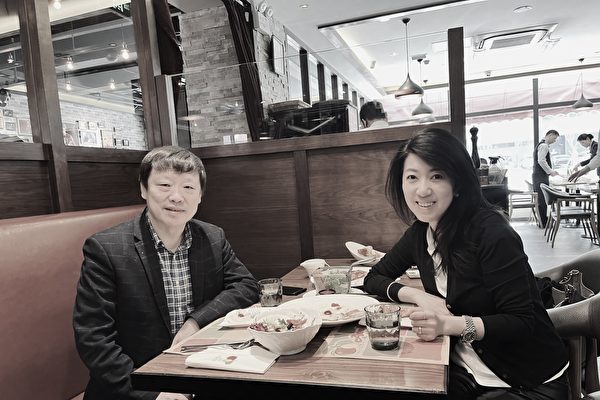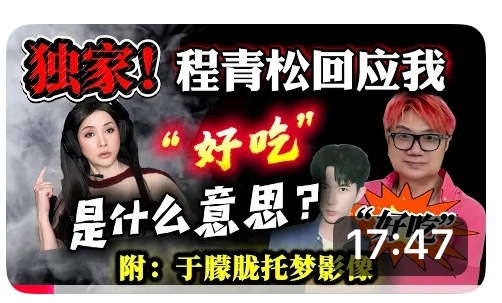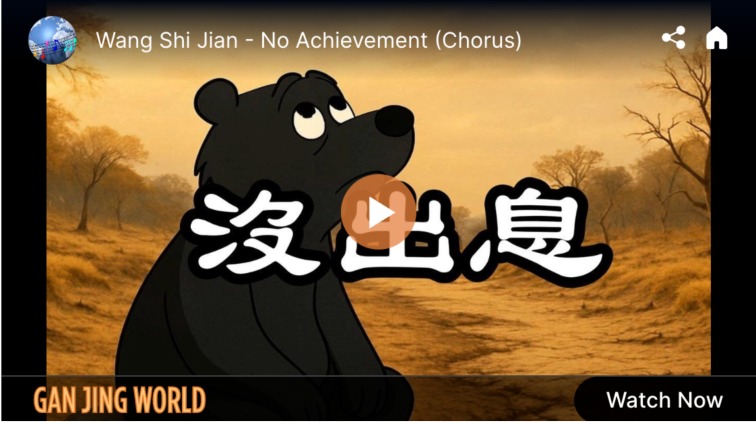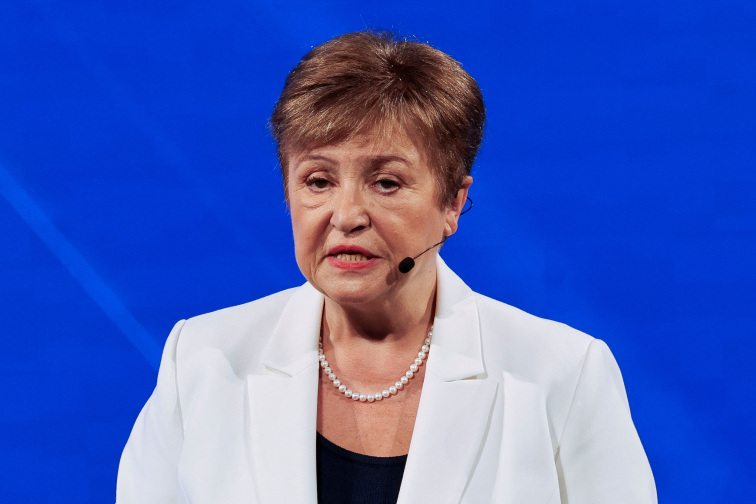Fang Fang and Hu Xijin gathered for dinner in Beijing. (Image sourced from Hu Xijin's Weibo)
[People News] Hu Xijin, the former editor-in-chief of the Global Times, published a lengthy blog post on the evening of the 13th. In this article, he criticises the lack of freedom of speech in Chinese society, noting that individuals are increasingly cautious when speaking on social media. He attributes this to a fundamental decrease in "societal tolerance." Hu Xijin has often been viewed as a self-serving opportunist, and the timing of his article, just before the Fourth Plenary Session, has drawn significant attention.
In his blog post, Hu Xijin opens by highlighting a peculiar social phenomenon in China: many people are now hesitant to express themselves on social media, with some choosing not to speak at all. He specifically mentions "celebrities," as well as individuals within the system, university professors, and executives from private enterprises, observing that their "personalised information has become as pristine as fields after the autumn harvest."
Hu Xijin points out that in China, the risks associated with expressing oneself online have grown significantly, potentially leading to trouble for the individual and even affecting their institutions. Consequently, people have either voluntarily or under workplace pressure greatly reduced their willingness to engage in the exchange of information and opinions on social media, often limiting themselves to merely browsing and occasionally liking posts.
He further notes that the overall atmosphere on the Chinese internet is "becoming increasingly severe," with risks escalating. The burden of such risks is challenging for anyone to bear. Hu Xijin advocates for a more lenient approach within Chinese society, suggesting that it should operate "under the constitutional order led by the Party."
Hu Xijin's article has ignited a lively debate.
Some netizens remarked, "There are people online questioning how even school uniforms can be labelled as 'provoking trouble', and this is one of the reasons."
"Be cautious when posting comments; the police might come after you!"
Other netizens directly criticised Hu Xijin (胡錫進), stating, "The current atmosphere is undoubtedly fueled by Old Hu, so don't pretend to be confused while knowing the truth."
"The reason people are becoming increasingly cautious about expressing their opinions is mainly due to the presence of too many individuals like Old Hu, who nitpick and unjustly label others. For instance, regarding the box office announcement during the National Day and Mid-Autumn Festival holidays, just because they didn't compare it with last year's data, Old Hu labelled it as inconsistent with the facts."
Many netizens believe that Hu Xijin only dares to criticise superficial issues and does not touch the core of the problem. Is it really just fear of online harassment that prevents everyone from speaking out?
Some netizens pointed out that the real reason people are increasingly afraid to speak online lies in the three words he mentioned (referring to 'party leadership'); they simply choose not to say it. Others commented that Hu Xijin went around in circles only to state that 'society' needs to be more lenient, which is akin to scratching an itch through a boot. Who really needs to be more lenient? Can't he see that?
In his blog post, Hu Xijin first identified celebrities as the group that dares not speak out. In reality, the most sensitive issue in Chinese society right now is the severely suppressed case of celebrity Yu Menglong (于朦朧). The authorities' control measures this time can be described as unprecedented. Hu Xijin's willingness to hint at this so clearly gives the impression that he is doing it intentionally.
Political commentator Chen Pokong (陳破空) analysed in a program that Hu Xijin's comments carry risks. However, Hu Xijin is actually quite timid and fearful, always monitoring the prevailing winds. Why does he feel emboldened to speak now?
Chen Pokuang believes that by making these remarks before the Fourth Plenary Session, Hu Xijin has directed his criticism towards the extreme left and Maoist factions, effectively targeting the Xi Jinping era. He even began by discussing celebrities, directly implicating Yu Menglong. The superior he refers to, the ultimate authority, is Xi Jinping.
"Hu Xijin aims to address and settle accounts with the extreme left faction at the Fourth Plenary Session," Chen Pokuang stated. "He may be hoping for someone to step down and relinquish their responsibilities."
It is widely recognised that Hu Xijin's behaviour and rhetoric have led many to view him as a refined egoist. His actions often fluctuate, and he frequently adopts a moral high ground to criticise and lecture others. Fundamentally, he is a party loyalist; he follows the party's directives without question.
Chen Pokuang noted that Hu Xijin's sudden boldness suggests he has backing from someone influential. This is likely a result of the factional struggles within the upper echelons of the Communist Party, where internal conflicts necessitate the leaking of information.
Has Hu Xijin detected a shift in political currents, and is he openly challenging Xi Jinping with the support of certain forces?
Chen Pokuang highlighted that prior to the Fourth Plenary Session, both factions were disseminating information. The Cyberspace Administration and the Ministry of Public Security were launching attacks against the public, while the anti-Xi faction was preparing to retaliate, creating a tangled web of public opinion that has left the outside world bewildered.
△











News magazine bootstrap themes!
I like this themes, fast loading and look profesional
Thank you Carlos!
You're welcome!
Please support me with give positive rating!
Yes Sure!